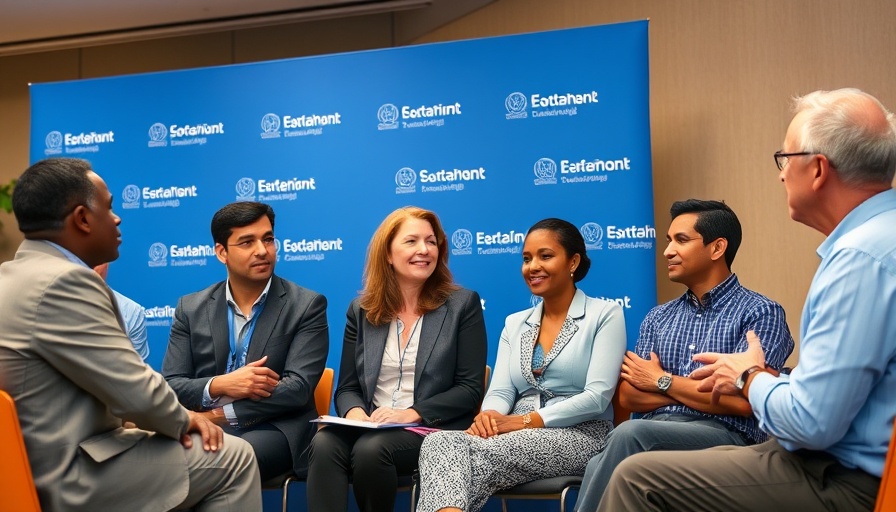
A Pragmatic Shift in Banking for Sustainability
The global race towards decarbonization is becoming more accessible to banks, thanks to a recent strategic pivot by the United Overseas Bank (UOB). Melissa Moi, the head of UOB's Sustainable Business, has championed a 'pragmatic reset' in banking practices to include previously skeptical lenders into the global green initiative. This shift aims not only to address climate goals but to create a broader coalition that allows local and regional banks in Southeast Asia to find their own paths to sustainability.
Opening Doors for New Players in Sustainable Finance
UOB's decision to modify its climate targets—moving from a strict goal of limiting temperature rise to 1.5 degrees Celsius to a more flexible target of keeping warming “well below 2 degrees Celsius”—is not just a concession. According to Moi, this deliberate change opens doors for regional banks that may have hesitated to commit to aggressive decarbonization strategies due to perceived rigidities in existing frameworks.
“This opening of the door is an evolution aimed at bringing more players into the fold,” Moi stated. By emphasizing adaptability over strict guidelines, UOB hopes to foster an environment where smaller banks can more comfortably engage with sustainability initiatives.
Regional Context: Southeast Asia’s Unique Challenges
The road toward sustainable development in Southeast Asia remains fraught with challenges, especially considering the region's ongoing dependence on fossil fuels for economic growth. As global dynamics shift, many countries in the region face the dual challenge of economic and environmental sustainability.
Moi underlines the critical need for localized solutions that prioritize both economic growth and environmental stewardship: “There’s no one-size-fits-all solution. The complexities of different market operators must be understood and factored into decision-making processes.” She further notes the continued discussions around ensuring that energy emissions are decoupled from economic growth across ASEAN countries.
Key Insights: China’s Shift and Its Regional Effects
Amidst its struggles, China stands as a focal point for the region's green aspirations. With the recent reports indicating a significant drop in emissions, the world is watching closely as China ramps up its renewable energy capacity. For banks like UOB, these developments signify not only challenges but also opportunities to align their initiatives with broader regional practices.
What This Means for Sustainability Practices
This reset in UOB's approach also carries implications for how the bank intends to finance small- and medium-sized enterprises (SMEs). By creating frameworks tailored for these businesses, UOB aims to empower SMEs to engage in sustainability practices, thus expanding its impact on community-level sustainability.
Ultimately, UOB’s strategic decisions underscore the importance of collaboration in achieving common sustainability goals. Banks across Southeast Asia must align their operational strategies with ecological responsibilities, ensuring that they are part of the solution rather than contributors to the problem.
Inspiring Eco-Friendly Choices for Future Generations
The conversation around sustainability in finance doesn't just end with banks. It extends to consumers and businesses that make eco-conscious choices every day. As we consider our collective carbon footprint, initiatives like UOB's can lead to greater transparency and sustainability across the board—from consumer habits to corporate responsibility.
Please consider the sustainable choices you make today, from supporting businesses that prioritize green initiatives to adopting eco-friendly products in your daily life. Every choice contributes to a better future for our planet.
 Add Row
Add Row  Add
Add 



Write A Comment